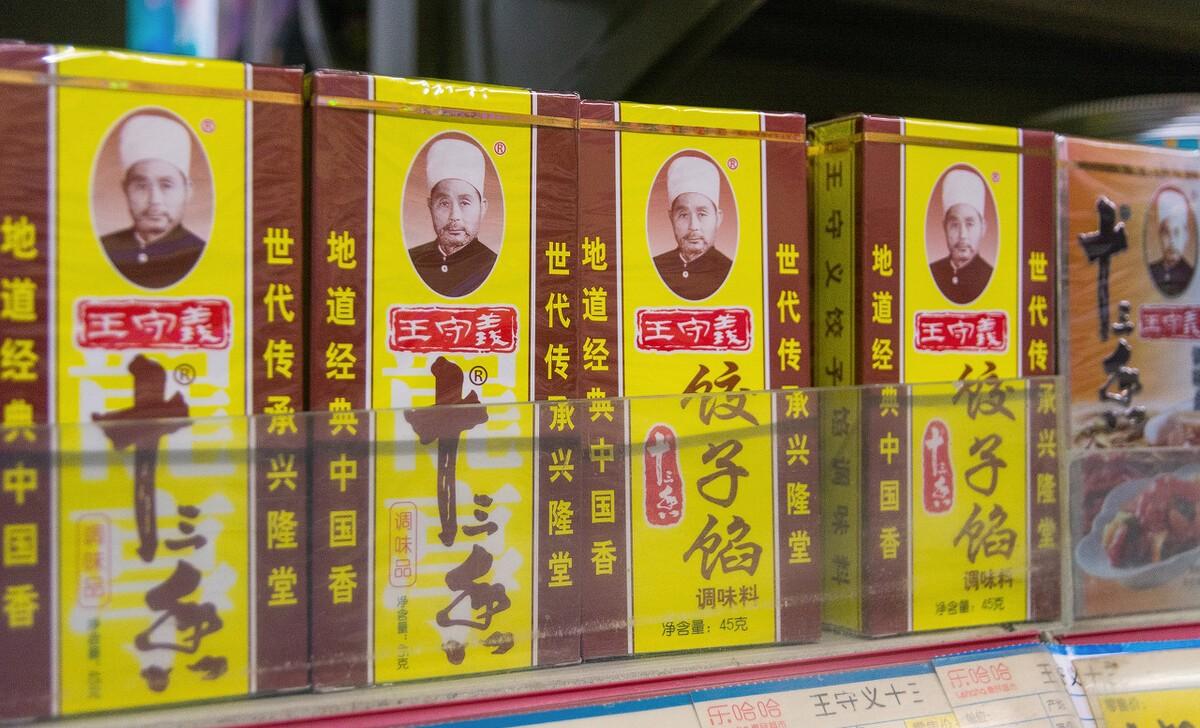At the end of the 1990s, everyone kept seeing the image of an old man wearing a white hat and kind eyebrows from CCTV advertisements and news. Since then, Wang Shouyi Thirteen Fragrances has become a household name and has become a national brand in the memory of many people.

Many people do not know that this condiment company, founded in 1984 in Zhumadian City, Henan Province, started from a condiment factory and eventually became the leader of the national pure natural condiment industry.
The founder, Wang Shouyi, inherited the secret recipe from his grandfather and continued to carry it forward on the basis of the original recipe. In fact, "Thirteen Spices" is not only thirteen kinds of raw materials, but is made of more than 20 kinds of natural Chinese medicinal materials such as peppercorns, peppercorns, cloves, grass fruits, cumin, cinnamon, wood incense and so on.
Recently, however, word has come out that the once-widely known trademark is being left behind by the times along with decades of packaging. In 2020, the annual revenue of "Wang Shouyi Thirteen Fragrances" was 2.15 billion yuan, which was only one-tenth of Haitian Flavor Industry and less than half of "Lao GanMa".
From the perspective of the process, the family-style business model, the failure of cross-border development and the rapid iteration of the condiment market, the development of e-commerce, etc. have all made "Wang Shouyi Thirteen Fragrances" face many crises today.
In fact, many of the old condiment products are experiencing similar changes. Even products like Lao Ganma, which have once been popular overseas, are no exception.
In the era of great changes, the flashing market, I don't know if these brands that we are familiar with can only become the memory of a generation in a few years?
However, our country is vast and vast. In fact, each region has its own special seasoning.
For example, in Yunnan, there is a unique Yunnan garlic oil millet spicy. This garlic oil millet spicy dipping water seasoning is particularly fragrant, with steamed rice needless to say, is to cook noodles when picking a chopsticks into the bowl can also be fragrant.
In Guizhou, there is a spice called dipping water, which generally has folded ear roots, that is, houttuynia cordata. In Guizhou, no matter how good the food is not dipped in water, it cannot be called a delicacy.
Guizhou dipped in water
In Hainan, there is a kind of assorted sauce, also called Qiong sauce, which is a must-have seasoning for every household in Hainan Province.
Its blending is mainly composed of peanut flour, sesame paste, sweet potatoes, sugar, vinegar, soy sauce, pepper, five-spice powder, sesame oil, wine and so on. The sauce is fragrant, salty and sweet, with an endless aftertaste. Hainan people eat white cut chicken, edge stove, roast meat, and all kinds of pots.
Hainan Qiong sauce
Hainan also has a yellow bell pepper sauce, which is definitely a seasoning for diners who like to eat spicy. I think everyone is already familiar with this.
In Cantonese cuisine, southern milk is often used, such as Cantonese char siu. In fact, in Cantonese stew braised braised, whether it is chicken, duck, or pig, they all like Canam milk. The southern milk is bright red in color and has a strong taste, and it is fragrant but does not have any peculiar smell.
Dai lemonch
For example, Shandong's sea intestine powder, Northeast China's sauce, old Beijing's leek flowers, stinky tofu, Chongqing's seasoning salt, Dai's lemongrass, Shaanxi's oil spicy seeds, Shanxi's black sauce, Shanghai's spicy soy sauce, Guangzhou's sour plum powder, Liuzhou's sour shoots......... Think about the special seasonings around the world is really a lot, which is not a must? Who knows which is the new seasoning master successor?
#王守义十三香不 "incense"? #
What do you think about the fact that the "Thirteen Incense of Wang Shouyi" is no longer fragrant? What are the recommended seasonings in your hometown? Welcome to leave a message to express your opinion, thank you for liking and forwarding, if you have any suggestions, please send a private message to FengGe, if you like Fengge articles, please also move your jade finger to add a concern.
<h1 class="pgc-h-arrow-right" data-track="33" > Fengge, a professional media person, has been an editor-in-chief, coordinates the imperial capital, in addition to caring about grain and vegetables, but also concerned about the whole world of China. Hot spots say regions, news looks at culture, and there is knowledge in stories. Your hometown is my hometown, your attention is my attention! More articles continue, invite you to join, let's talk all the time? </h1>